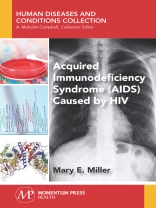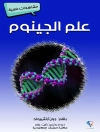Acquired immunodeficiency syndrome, or AIDS, is a disease of the immune system that is caused by the human immunodeficiency virus (HIV). AIDS has caused significant loss of life with considerable social and economic consequences worldwide. HIV must infect a host cell in order to replicate, and once infected, the host cell is unable to function properly. Since HIV infects specific cells of the host immune system, HIV infection impairs the ability of the patient to fight infections and kill cancer cells, therefore most deaths associated with HIV infection occur due to cancer or opportunistic infections. There is no cure for HIV, but advancements in treatments mean that an HIV positive person could experience a normal lifespan with sustained daily care and medication designed to prevent HIV replication and spread. These medications primarily target viral proteins that allow HIV to infect host cells, replicate, and spread in the body. Work continues to find a way to eliminate HIV from patients and develop new pharmaceutical targets to address concerns of drug resistant strains of HIV. Worldwide awareness of how the virus infects, is treated, and spreads within populations is a critical component to control the current AIDS pandemic.
A propos de l’auteur
Mary E. Miller is an associate professor and director of the biochemistry and molecular biology program at Rhodes College, TN. She holds the J. T. and V. B. Robertson Chair of Biological Sciences and has been awarded the Rhodes College Clarence Day Award for Outstanding Research or Creative Activity. She received her Ph D in microbiology from the University of Virginia, Charlottesville, VA, and studied as a postdoctoral at the Rockefeller University, NY. Dr. Miller teaches introductory biology, genetics, molecular biology, microbiology, and topical seminars on cancer. She researches cell division and key regulators of cell-division cycle.












